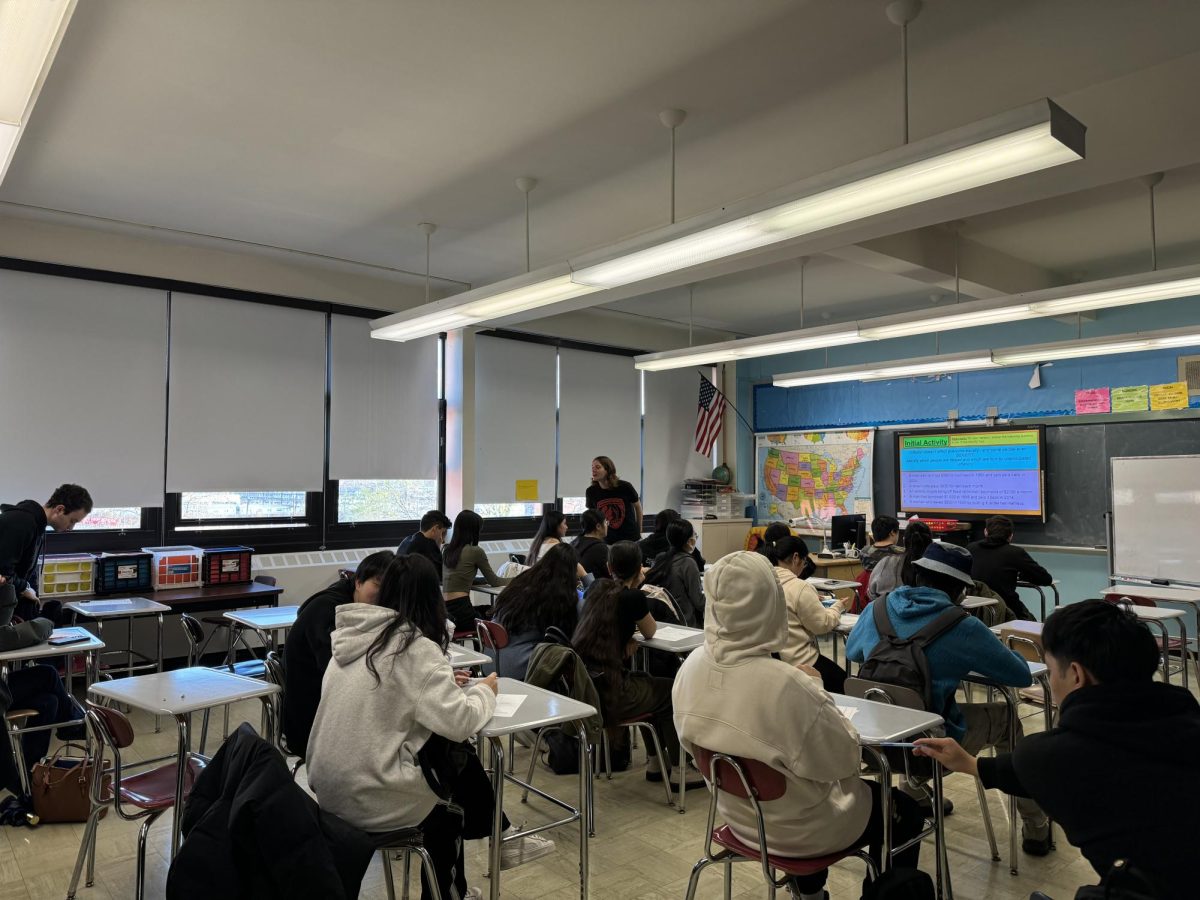John Dewey High School permits a certain amount of AP classes in each grade. This policy was put in place in the 2022-2023 school year. In some ways, it has positively affected education; however, many feel that it limits opportunities for higher achieving students at our school.
What does this policy incorporate?
According to this rule, freshmen cannot take any AP classes, sophomores can only take one, juniors can take two, and seniors can take up to three AP classes. In total, the maximum number of AP courses a student can take throughout all four years is 6. However, there are exceptions to this rule: if a student has taken more challenging courses throughout their years in middle school, they may be permitted to take more challenging courses in their freshman year. If they succeed in that, they may be allowed to take more classes in the future. Another exception could be made if a student has proven that they are capable of handling AP classes. For example, if a student has taken two classes in their junior year and has gotten the highest grades in the class and a good score (3 or more) on the AP exam, they may be permitted to take four courses in their senior year. It all depends on the student.
Why was this policy put in place?
Over the years, many students have tried to take on the challenge of taking multiple AP courses. Many have succeeded; however, a great number of students have tried so and failed. Because of this failure, they were sometimes even forced to take summer school. To try to prevent this trend, according to AP supervisor at JDHS Ms. Rosenbloom, the policy was put in place.
How does it affect high-achieving students at JDHS?
Many of our top students, striving to get into the best universities in the country, have been dissatisfied with this act.
AP courses and class rigor are an important part of college application—colleges prefer students who take on the challenge of advanced classes. A college representative from Columbia University that visited our school pointed out that they generally prefer a B in AP classes over an A in regular courses. As she said, “it shows that a student is prepared to take demanding courses at schools such as ours.” However, she also pointed out that while they prefer students who take a lot of advanced classes, they implement “holistic evaluation,” where they consider a student’s school’s profile and how many AP’s that school offers.
According to Angel Tam—one of the top seniors at our school—“this policy puts us at a major disadvantage when it comes to applying to schools with low acceptance rates. It makes us seem less competitive overall.” She stated that “if it weren’t for the regulation, [she] would have taken 10 AP classes,” adding that “six classes aren’t enough to be competitive at good colleges.”
Many students have also expressed dissatisfaction because “it limits the capabilities of the students” and “only accounts for students who are not looking for education in more competitive colleges.”
Is this policy only at Dewey?
Ms. Rosenbloom wasn’t able to answer this question; however, as she states, “[the administration tries to] adjust to the students’ needs as much as possible; for example, many students requested AP Macroeconomics. In response to the need, we added additional openings in economics.” ”Not a lot of schools offer the same variety and the amount of AP’s as we do.”
Does this policy have the potential to change in the future?
Yes, as stated by Ms. Rosenbloom, they are working on improving this curriculum. They are trying to offer more Pre-AP courses and new classes, such as African-American history. They are also trying to incorporate new dual credit programs, such as psychology and western civilization, in partnership with the University at Albany.
Conclusion:
There are many opinions on this topic. Many believe that it is a great issue; however, many believe that it is necessary to have a policy such as this at our school. In the end, the school’s administration is trying to meet the students’ needs. What do you think about this matter?















